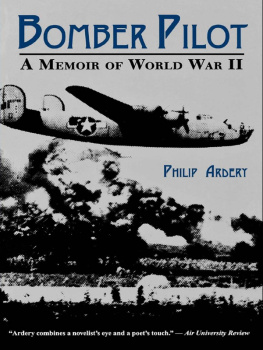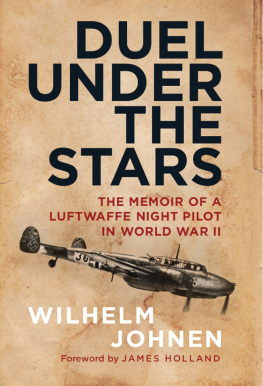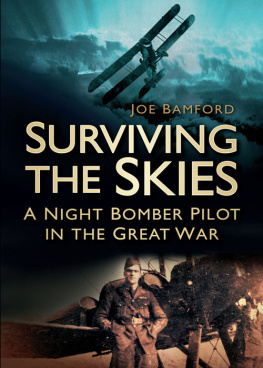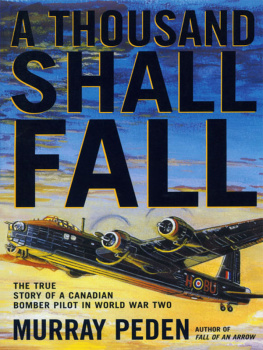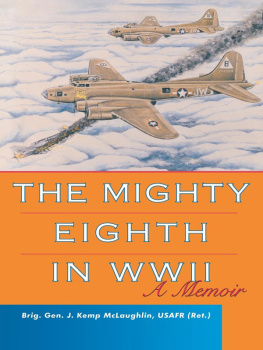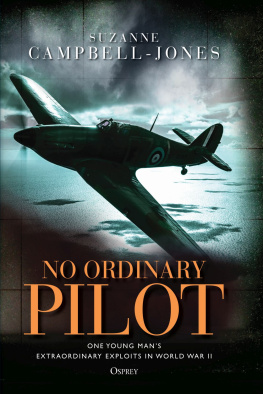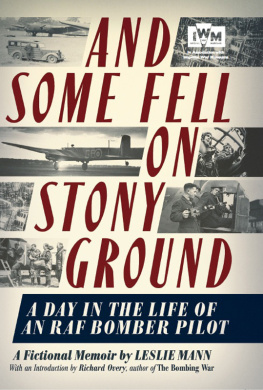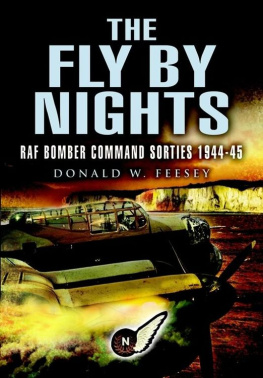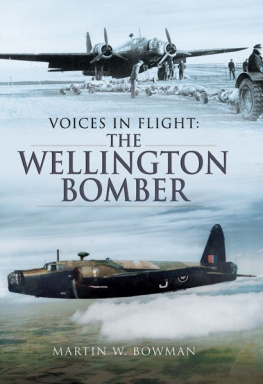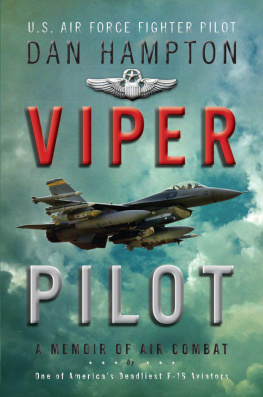Philip Ardery - Bomber Pilot: A Memoir of World War II
Here you can read online Philip Ardery - Bomber Pilot: A Memoir of World War II full text of the book (entire story) in english for free. Download pdf and epub, get meaning, cover and reviews about this ebook. year: 1996, publisher: University Press of Kentucky, genre: History. Description of the work, (preface) as well as reviews are available. Best literature library LitArk.com created for fans of good reading and offers a wide selection of genres:
Romance novel
Science fiction
Adventure
Detective
Science
History
Home and family
Prose
Art
Politics
Computer
Non-fiction
Religion
Business
Children
Humor
Choose a favorite category and find really read worthwhile books. Enjoy immersion in the world of imagination, feel the emotions of the characters or learn something new for yourself, make an fascinating discovery.
- Book:Bomber Pilot: A Memoir of World War II
- Author:
- Publisher:University Press of Kentucky
- Genre:
- Year:1996
- Rating:4 / 5
- Favourites:Add to favourites
- Your mark:
- 80
- 1
- 2
- 3
- 4
- 5
Bomber Pilot: A Memoir of World War II: summary, description and annotation
We offer to read an annotation, description, summary or preface (depends on what the author of the book "Bomber Pilot: A Memoir of World War II" wrote himself). If you haven't found the necessary information about the book — write in the comments, we will try to find it.
Bomber Pilot: A Memoir of World War II — read online for free the complete book (whole text) full work
Below is the text of the book, divided by pages. System saving the place of the last page read, allows you to conveniently read the book "Bomber Pilot: A Memoir of World War II" online for free, without having to search again every time where you left off. Put a bookmark, and you can go to the page where you finished reading at any time.
Font size:
Interval:
Bookmark:
Acknowledgments
I would like to acknowledge the patience and constructive assistance of the following, who read the manuscript and made suggestions: Robert Ardrey, Mr. and Mrs. William B. Ardery, Robert A. Thornbury, Joy Bale Boone, John Ed Pearce, and Alan U. Schwartz.
Brigadier General H. J. Dalton, Jr., and the Office of the Secretary of the Air Force/Office of Information have been very helpful.
In the summer of 1940 I was a lawyer in active practice, twenty-six years old, two years out of Harvard Law School, and five years out of the University of Kentucky. My parents home was in Bourbon County, just outside of Paris, Kentucky, on the road to Lexington. That was where I had lived most of my life. I went some forty miles west of my home to Frankfort to hang out my shingle. I chose Frankfort because it was nearby, it was a small town, it was the state capital, filled with politics, and at that time it didn't seem quite so overcrowded with lawyers as other small towns in the Bluegrass. I had almost no clients for six months. But things slowly began to change, until by that summer of 1940 I had quite a practice. It was about three-fourths charitable, but quantitatively it stood fair comparison to the practices of several other lawyers in town.
I was a reserve officer on the active list and had been presented with orders to attend the Second Army maneuvers in Wisconsin. I had received a commission as a second lieutenant, Infantry Reserve, along with my bachelor of arts degree from the University of Kentucky in 1935. I had kept up my training and in the summer of 1940 was a first lieutenant. I was young, healthy, and unmarried, and in the forefront of those called to the maneuvers. It was evident America was perking up a bit to the sounds of war in Europe. France had fallen that spring. In about a month the air blitz of London would begin.
And so I went to Wisconsin in July. It rained every day except one during the maneuvers. The confusion and general awkwardness of our war machine just beginning to unlimber itself were frustrating. Beer cans were used as simulated mortar ammunition and stovepipes as simulated mortars. During the height of maneuvers trucks dashed about carrying signs which read TANK or PROPELLED GUN. We sat in the mud and rain not knowing whether the spectacle was tragic or funny. In the downpour of rain beans floated over the side of my messkit before I could eat them. Between battle problems I tried futilely to rest on a cot in my one-man pup tent. The level of water almost reached the point where I lay, and more water dripped dismally from the roof. I blamed what I didn't like about those maneuvers on the Infantry.
I had always wanted to fly. A friend who owned a Cub airplane had been trying to sell me flying lessons for a long time. I didn't have the time or the money for flying lessons, and so I had declined. Now it crept into the back of my mind that I might learn to fly at government expense and at the same time break clear of the Infantry. In war the men of the Air Corps got back to warm beds and hot meals, if they got back at all. The men of the Air Corps didn't have to stand out in the rain all day counting the beans that floated out of their messkits. The men of the Air Corps stood around big open fireplaces singing, with glasses in their hands, and when they stopped singing they turned and broke their glasses in the fire. I was twenty-six and the age limit for student pilots was twenty-seven. I wrote out my application for pilot training and sent it off.
When I got home from maneuvers I found a letter notifying me to come to Fort Knox to take a physical exam for the Air Corps. I took the exam immediately and returned to Frankfort. I was trying to get ready for the September term of Circuit Court, and at the same time trying to visualize what it might be like to cover the shingle for a couple of years and be off to the Air Corps. Everything seemed a maze of important detail until two weeks later when the news came that I had passed the physical and would soon receive assignment to a class in flight training. I scurried around making an effort to leave the affairs of my clients in proper hands.
Within an hour of the time the mail arrived bearing the notice ordering me to flight training I was packing my Ford convertible. My orders were to report to Fort Knox for induction and then to Lincoln, Nebraska, for primary flying school. I would miss Frankfort, but I hoped I would soon be coming back to take up where I had left off when I might be secure in the knowledge that I could concentrate the rest of my life on law.
I took my belongings to the home of my parents. Mother was away at the time visiting her sister in Virginia, which gave me a pang of conscience about her. I hadn't told her I was hoping to go into the Air Corps because I had felt there was such a strong chance I would be rejected. Now I realized it was a bad conclusion. My father was surprised. There are some hazards a man can't escape, I told him. I have a commission and I must choose what I want now or lose my chance to choose. He nodded sadly but understandingly and waved as I got in the car and drove off.
I arrived in Lincoln, Nebraska, on a Friday night. It was a fairly large town, comparable to Louisville but newer and laid out in a more orderly fashion on ground as flat as the country around it. I questioned a policeman and was directed to a small building on the edge of town toward Omaha. It was a house currently rented by the Lincoln Airplane and Flying School, a private institution conducting primary flight training under contract to the Air Corps. I went in and found a bed. I was delighted to discover that the upper-class cadets lived downtown in the YMCA, so I would not see much of them except at the flying line.
Next day I woke early, dressed and breakfasted, and was first in line waiting for the bus to take us to the field. Already I could see I was going to like the life of a flying cadet. The meals were good, the beds were soft, we even had maid service to give us the same freedom from chores that we might expect as officers. I was quite conscious of the fact that I was no longer a first lieutenant Infantry, but a flying cadet. As such my status was that of an enlisted private.
Our airport's huddle of buildings appeared to be temporary structures. The big hangar had Lincoln Airplane and Flying School painted across the top of its doors. That morning as we drove up, what first caught our attention was the line of parked airplanes. They were brilliantly painted Stearman PT13As. There must have been twelve or fifteen of them lined up wingtip to wingtip on the ramp facing the hangar. They were two-seater biplanes with yellow wings and blue fuselages and looked as warlike as anything I had ever seen outside of the movies. I walked up to the end airplane. It had a big Lycoming radial engine which I had been told developed 225 horsepower and it obviously weighed three times as much as the Cub I knew back in Kentucky. Just as I was inspecting the ship, the upperclassmen came piling out of the flight room donning their flying gear. They scattered themselves among the planes and in a moment engines were sputtering and props were sending little whirlwinds of dust back under the wings.
Our class was called into the flight room, lined up according to height, and broken up into groups of three. Two fellows named Steinemann and Jensen, blond Nordic men, were put with me, and all of us were presented to an instructor. He was a rather tough-looking, stubby, blond fellow named Lowe, and I learned that he had been an old-time barnstormer. He looked the part and talked in an offhand manner slightly out of the corner of his mouth, his eyes glittering like a bird's. Lowe chatted a minute or two about inconsequential things, and then disappeared into the flying instructors room. I hoped I would like Lowe and that Jensen and Steinemann wouldn't excel as pilots, which might cause me to get washed out.
Font size:
Interval:
Bookmark:
Similar books «Bomber Pilot: A Memoir of World War II»
Look at similar books to Bomber Pilot: A Memoir of World War II. We have selected literature similar in name and meaning in the hope of providing readers with more options to find new, interesting, not yet read works.
Discussion, reviews of the book Bomber Pilot: A Memoir of World War II and just readers' own opinions. Leave your comments, write what you think about the work, its meaning or the main characters. Specify what exactly you liked and what you didn't like, and why you think so.

